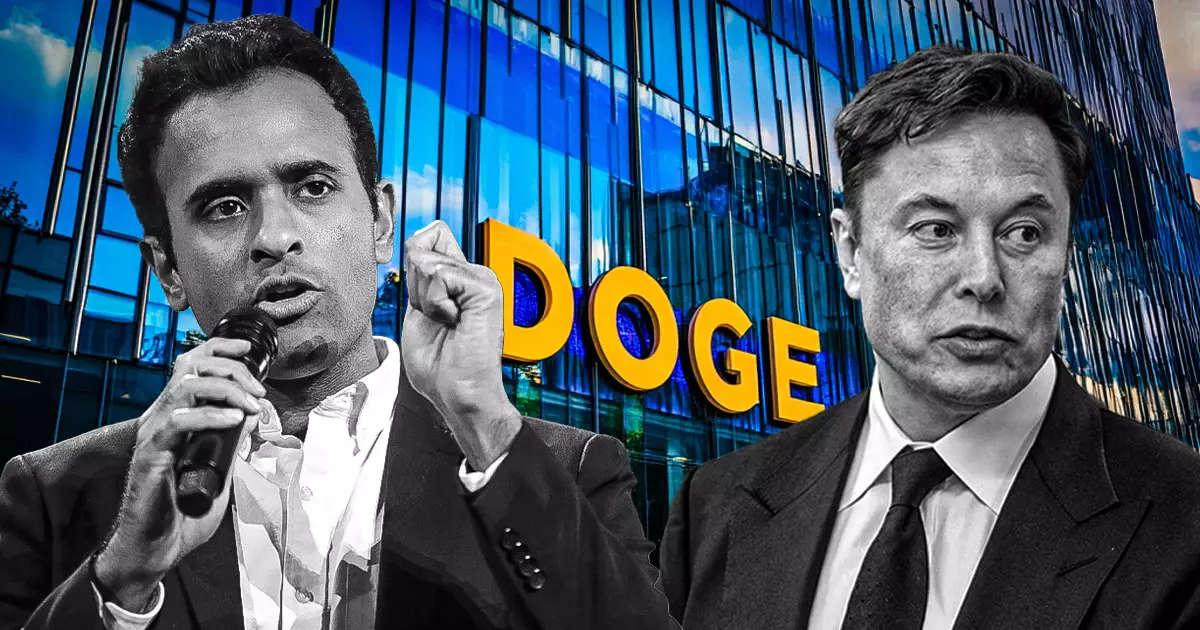In a striking move reflective of the current technological age, President-elect Donald Trump has unveiled an audacious initiative to overhaul government operations through the newly formed Department of Government Efficiency (DOGE). Appointing influential figures like tech visionary Elon Musk and former presidential contender Vivek Ramaswamy underscores Trump’s commitment to reforming federal structures, steering them towards greater efficiency and reduced waste. The announcement, made via Trump’s Truth Social platform on November 13, brings a sharp focus to a long-standing critique of bureaucratic sluggishness and regulatory burdens.
Trump likens the mission of DOGE to the monumental Manhattan Project of the 1940s, suggesting a parallel in ambition and historical significance. With a staggering annual budget of $6.5 trillion, the department’s primary task centers on identifying and eliminating “waste and fraud.” This strategic pivot aims to elevate government efficiency, with the expectation that meaningful reforms can be achieved by July 4, 2026—a date symbolically tied to the 250th anniversary of American independence. Such aspirational goals spotlight a bold vision for a government that trims excess while becoming more responsive to the needs of its citizens.
While DOGE is designed to be an independent entity, its collaborative framework will involve significant interaction with the White House and the Office of Management and Budget. This partnership model reflects the administration’s intention to harmonize efforts across agencies, fostering a cohesive approach to governance. Musk and Ramaswamy have committed to transparency and public involvement, vowing to engage citizens in governance like never before. Musk’s assertion that DOGE will maintain open lines of communication, allowing public feedback on government spending, indicates a progressive approach where citizen voices shape economic priorities.
As part of DOGE’s commitment to citizen participation, Ramaswamy revealed plans to solicit public input on identifying instances of government waste. This initiative not only democratizes the reform process but also calls upon Americans to play a direct role in shaping their government’s fiscal responsibility. By tapping into collective insights, the initiative is designed to create a participatory atmosphere that contrasts sharply with traditional top-down governance.
The playful choice of the name DOGE resonates powerfully within the cryptocurrency community, generating excitement and advocacy among Dogecoin enthusiasts. Despite a recent slump in Dogecoin’s market price, with a 10% drop following an earlier uptick, many see Musk’s involvement as a potential boon to the cryptocurrency amid market fluctuations. His public support for digital currencies not only revitalizes interest in Dogecoin but also frames the initiative around evolving financial landscapes that challenge conventional economic systems.
While the path ahead may be fraught with challenges, the establishment of the Department of Government Efficiency signals a transformative effort aimed at redefining government operations. With ambitious goals, community involvement, and a contemporary stance on financial innovation, Trump’s DOGE initiative could herald a new era in governance that not only enhances efficiency but also places citizen engagement at the forefront of government reform. The legacy of this initiative will ultimately depend on its implementation and the collective response from the American public as they navigate this novel approach to governance.
















Leave a Reply